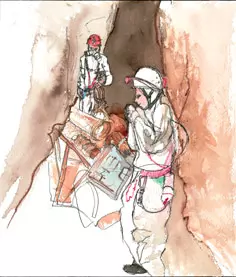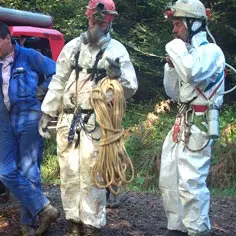
Environment and Biodiversity
Place
région Midi-Pyrénées, France
Sponsor
Éric Caset-Caricaburu
Grant(s)
6,000 euro to the Selection Committee at 2006/05/23
Project leader
Comité de spéléologie régional de Midi-Pyrénées
« We should highlight the environmental conservation aspect of this project, which aims to protect and preserve natural sites that contain a resource – water – that is vital and essential, not just for today but also for future generations. In addition, the organization's awareness-raising work is a genuine civic initiative which is of benefit to all. »
Éric Caset-Caricaburu
Whenever a French region is affected by drought, people's attention turns to groundwater reserves: has the drought affected the water table? Are there sufficient reserves of groundwater? In most cases, the answers are fairly reassuring, although it is true that we don't know much about these environments.
Informing people about the consequences of certain - too frequent - actions
In the Midi-Pyrénées region, which, from south of the Massif Central to the Pyrenees, has abundant reserves of water, the Comité de Spéléologie régional (regional speleology committee) has been working in favor of environmental conservation for many years.
These initiatives include treating and rehabilitating polluted karst areas in order to protect the region's substantial surface and groundwater resources. This volunteer action is even more essential in that in some cases, these sites are a direct source of potable water.

However, this underground work is, by definition, not particularly visible, so the speleologists also carry out campaigns to raise the awareness of the general public: panels at the places where work is carried out, comment in the local media, organization of evening briefings and talks in schools. In this way, they communicate with a wider public about the risks of uncontrolled dumping of waste in the natural environment and its short, medium and long-term consequences.
In 2006, the Comité de spéléologie carried out work in Ariège (gouffre du Figuier), Aveyron (Igue du Puech Youle), the Hautes-Pyrénées (gouffre du Camion) and in the Lot (former Bach phosphate mines). To finance these different operations and the two components of its work (treating pollution and raising awareness), it called on a number of partners. Alongside the Regional and County Councils, the French Water Agency and the Banque Populaire network, the Veolia foundation is encouraging these very important initiatives by means of a 6,000 euro grant.

